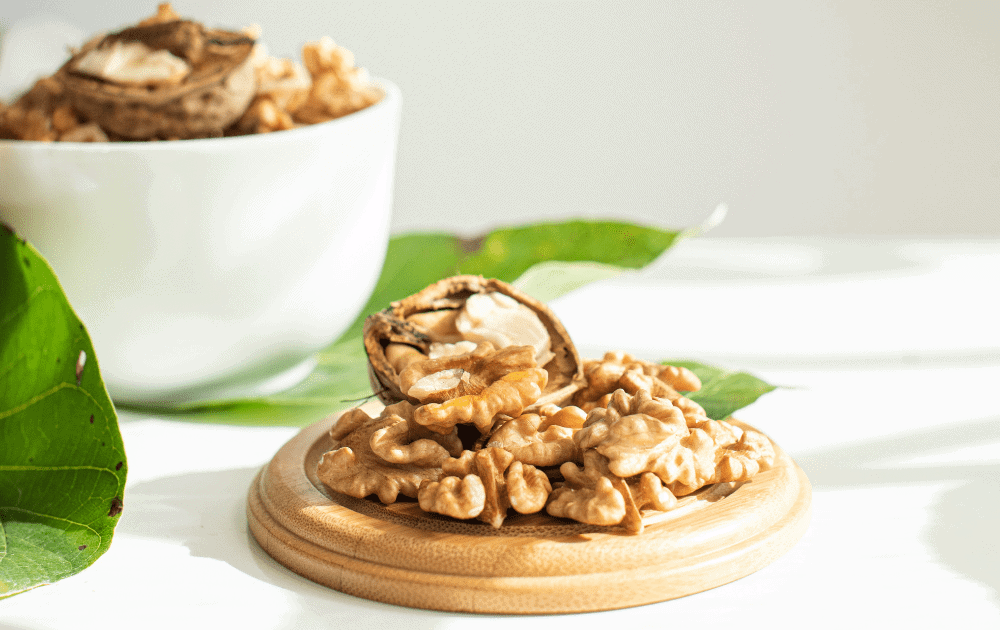Omega-3 fatty acids are essential nutrients for human health, and they are primarily found in certain types of fish, nuts, seeds, and plant oils. Here are a list of Benefits of Omega 3 for optimal health:
- Heart Health: Reduces the risk of heart disease, lowers triglycerides, and helps maintain healthy blood pressure.
- Brain Function: Supports cognitive function, memory, and mood regulation.
- Inflammation Reduction: Helps alleviate chronic inflammation throughout the body.
- Joint Health: Reduces joint pain and stiffness associated with arthritis.
- Eye Health: Supports vision and reduces the risk of age-related macular degeneration.
- Skin Health: Improves skin conditions such as eczema and psoriasis.
- Mental Health: May reduce the risk of depression and anxiety.
- Pregnancy and Infant Development: Supports foetal brain and eye development.
- Bone Health: Improves calcium absorption, contributing to bone health.
- Athletic Performance: Enhances exercise recovery and may improve performance.
- Cancer Prevention: Shows promise in reducing the risk of certain cancers.
- Autoimmune Diseases: May alleviate symptoms of autoimmune diseases.
- Liver Health: Helps prevent fatty liver disease.
- Improved Sleep: May improve sleep quality.
- Longevity: Contributes to overall health and longevity.

Here are some healthy sources of omega-3 fatty acids:
- Fatty Fish: Salmon, mackerel, trout, sardines, and herring are excellent sources of omega-3 fatty acids, particularly EPA (eicosapentaenoic acid) and DHA (docosahexaenoic acid).
- Flaxseeds: Flaxseeds and flaxseed oil are rich in ALA (alpha-linolenic acid), which is a type of omega-3 fatty acid. Ground flaxseeds are usually better absorbed than whole seeds.
- Chia Seeds: Chia seeds are another plant-based source of ALA. They can be easily incorporated into various dishes such as smoothies, oatmeal, or salads.
- Walnuts: Walnuts are a good source of ALA and can be eaten as a snack or added to salads, oatmeal, or baked goods.
- Hemp Seeds: Hemp seeds are a source of ALA and can be sprinkled on top of yogurt, salads, or blended into smoothies.
- Edamame: Edamame, or young soy beans, contain ALA and can be consumed as a snack or added to salads and stir-fries.
- Seaweed and Algae: Certain types of seaweed and algae supplements contain DHA, which is beneficial for individuals following a vegetarian or vegan diet.
When incorporating omega-3 fatty acids into your diet, it’s essential to consider the overall balance of fats. Omega-3s should be consumed in conjunction with omega-6 fatty acids, but many Western diets tend to be higher in omega-6 fatty acids due to the prevalence of vegetable oils. Striking a balance between omega-3 and omega-6 fatty acids is crucial for optimal health.
Need more help on nutrition and supplements, book your health consultation with our partner The Functional Nutrition– all members have access to a discounted intro to nutrition programme when they sign up.
Not yet a member. Click here to book a free studio tour or to see our membership plans >>
JOIN












